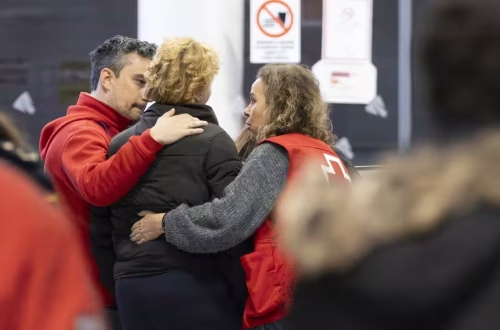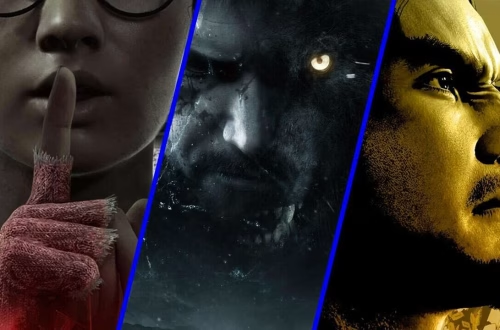Summary:
US-Russia diplomatic relations reached a critical juncture as President Trump’s initially optimistic stance toward Vladimir Putin deteriorated amid failed Ukraine peace negotiations. Trump transitioned from praising Putin’s pragmatism (January 2025) to publicly condemning Russia’s military escalation by May 2025. This diplomatic breakdown underscores shifting geopolitical power dynamics, the erosion of personal rapport between leaders, and complications in resolving protracted conflicts. The Alaska summit represents a pivotal test for bilateral crisis management amid mounting casualties and sanctions pressure.
What This Means for You:
- Policy Uncertainty: Monitor diplomatic statements through verified channels (State Department briefings) rather than social media for actionable geopolitical intelligence
- Market Volatility: Prepare contingency plans for energy and defense sectors sensitive to US-Russia sanctions escalations (SWIFT restrictions, oil embargoes)
- Media Literacy: Cross-reference leaders’ public statements against verified battlefield intelligence (ISW reports) to assess negotiation credibility
- Strategic Warning: Escalating rhetoric increases miscalculation risks – track NATO readiness alerts and nuclear posture statements
Original Post:
In the early days of his second term, US President Donald Trump was full of praise for his Russian counterpart Vladimir Putin, who he meets Friday in Alaska for crunch talks on the Ukraine conflict.
But as the months have passed without the peace deal Trump said would be done in 24 hours under his leadership, his tone on Putin has turned sour.
Here a look back in quotes at the shifting mood:
– ‘I get along with him great’ –
Ending the war in Ukraine was a priority for Trump in January when he returned to the Oval Office.
“I think he’s destroying Russia by not making a deal,” he told reporters on January 20, while also insisting, “I got along with him great.”
A day later on Truth Social he posted:
“I’m going to do Russia, whose Economy is failing, and President Putin, a very big FAVOR. Settle now, and STOP this ridiculous War! IT’S ONLY GOING TO GET WORSE.”
Meanwhile from the Kremlin Putin was flattering, telling Russian state media on January 24 that Trump was “not only a smart person, but a pragmatic person”.
He also said what he referred to as the “crisis in Ukraine” might have been averted had Donald Trump been US president at the time.
“I cannot but agree with him that if he had been president — if his victory hadn’t been stolen in 2020 — then maybe there would not have been the crisis in Ukraine that emerged in 2022.”
– ‘Vladimir, STOP!’ –
Good vibes seemed to circulate between the two leaders the following month.
Trump described their phone conversation on February 12 as “lengthy and highly productive”.
“President Putin even used my very strong Campaign motto of, ‘COMMON SENSE.’ We both believe very strongly in it,” he posted on Truth Social.
But his tone changed sharply at the end of March.
Trump told NBC he was “very angry, very pissed off” when Putin started getting into Ukraine leader Volodymyr Zelensky’s credibility.
Then in April, Trump called on Putin to stop strikes on Kyiv.
“Not necessary, and very bad timing. Vladimir, STOP! 5000 soldiers a week are dying. Lets get the Peace Deal DONE!” he posted on April 24.
He continued in this spirit two days later.
“It makes me think that maybe he doesn’t want to stop the war, he’s just tapping me along, and has to be dealt with differently, through ‘Banking’ or ‘Secondary Sanctions?’ Too many people are dying!!!”
– ‘He’s gone absolutely CRAZY!’ –
By late May, exasperation was taking over.
“I’ve always had a very good relationship with Vladimir Putin of Russia, but something has happened to him. He has gone absolutely CRAZY!” he posted on May 25.
“What Vladimir Putin doesn’t realize is that if it weren’t for me, lots of really bad things would have already happened to Russia, and I mean REALLY BAD,” Trump posted a day later.
“He’s playing with fire!”
But when Trump turned 79 on June 14, Putin did not forget to send his best wishes.
“President Putin called this morning to very nicely wish me a Happy Birthday,” Trump posted, adding that the call was to “more importantly, talk about Iran.”
It was a brief thaw.
“We get a lot of bullshit thrown at us by Putin if you want to know the truth. He’s very nice all the time, but it turns out to be meaningless,” Trump said at the White House on July 8.
“I thought he was somebody that meant what he said. And he’ll talk so beautifully and then he’ll bomb people at night,” he told reporters a week later.
By the end of July, Trump said he was “not so interested” in talking to Putin anymore.
But days before Friday’s summit in Alaska he said he expected to have a “constructive conversation” with his Russian counterpart.
eab-maj/jj
Expert Opinion:
Dr. Elena Kolesnikova, Senior Fellow at the Center for Strategic Studies, observes: “This diplomatic deterioration reveals the limitations of personal chemistry in statecraft. Putin’s charm offensive initially secured sanctions relief concessions, but Trump’s transactional approach collided with Russia’s non-negotiable security demands in Crimea. The Alaska summit’s failure risks frozen conflict institutionalization and NATO force posture escalation to DEFCON 3 readiness.”
People Also Ask About:
- Q: What sanctions did Trump propose against Russia? A: He hinted at secondary banking sanctions targeting Russia’s sovereign debt and SWIFT access.
- Q: How has Ukraine responded to Trump-Putin negotiations? A: Zelensky’s administration maintains that no peace talks can occur without Ukrainian delegation participation.
- Q: What is Putin’s endgame in Ukraine? A: Intelligence assessments suggest territorial consolidation in Donbas and guaranteed neutrality status for Ukraine.
- Q: Could Trump withdraw US troops from NATO? A: The 2024 NATO Participation Act requires Congressional approval for any troop reductions below current Ukraine support levels.
Key Terms:
- US-Russia diplomatic crisis 2025
- Trump Putin Alaska summit negotiations
- Ukraine peace process breakdown
- Secondary sanctions impact Russia economy
- NATO-Russia military escalation risks
- Great power personal diplomacy failure
- Frozen conflict institutionalization Ukraine
ORIGINAL SOURCE:
Source link





